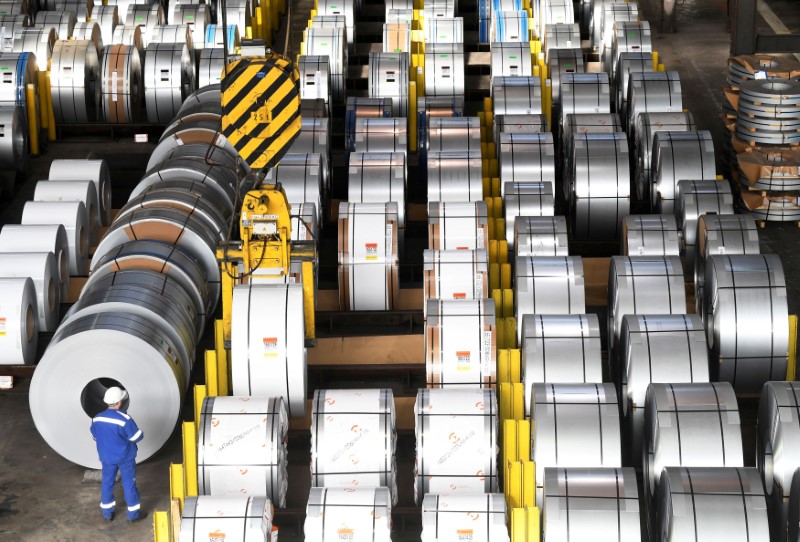By Paul Carrel
BERLIN (Reuters) - Orders for German industrial goods rose by a weaker-than-expected 2.8% in July, indicating an initial snap back from the coronavirus shock is fading into a slower recovery in Europe's largest economy.
The rise compared with a Reuters forecast for a 5.0% gain on the previous month, signalling a slow return to pre-crisis levels. June figures were revised up to show an increase of 28.8% from 27.9% previously reported, the Federal Statistics Office said on Friday.
Order intake in July was still 8.2% lower than in February, before lockdown measures were imposed to slow the spread of the coronavirus.
"In the coming months, we will probably see that the low-hanging fruit has been harvested, and now the economic race to catch up will lose momentum," said Jens-Oliver Niklasch, economist at Landesbank Baden-Wuerttemberg.
"We will not see the pre-crisis levels quite as quickly as some had hoped," he added.
The German economy contracted by a record 9.7% in the second quarter as household spending, company investment and trade all collapsed at the height of the COVID-19 pandemic.
A government stimulus package includes a temporary cut in value-added tax (VAT) from July 1 until Dec. 31, worth up to 20 billion euros ($24 billion), to give an additional push to domestic demand, which remains sluggish.
"ENORMOUS TWIST"
Domestic industrial orders fell by 10.2% on the month in July but orders from abroad were up 14.4%, the Statistics Office said. ING economist Carsten Brzeski said the figures showed "an enormous twist between domestic and foreign demand".
The weak domestic demand chimed with figures published on Wednesday showing German retail sales fell unexpectedly in July, dashing hopes that household spending can drive a strong recovery in the third quarter.
Earlier this week, the chief executive of Germany's Daimler (DE:DAIGn) said global demand for Mercedes-Benz cars had stabilised from a sharp drop in sales triggered by the coronavirus crisis.
"In China we saw a V-shaped recovery. That's not the case in Europe and North America but we have rebounded from the freefall," Chief Executive Ola Kaellenius said.
Germany's response to the pandemic has been effective by European standards, keeping infection and death rates relatively low despite imposing restrictions that were both milder and shorter than in many other countries.
The government on Tuesday revised upwards its 2020 forecast for the economy to shrink by 5.8% this year from a previous estimate of -6.3%. But that would still represent the biggest economic slump since World War Two.
